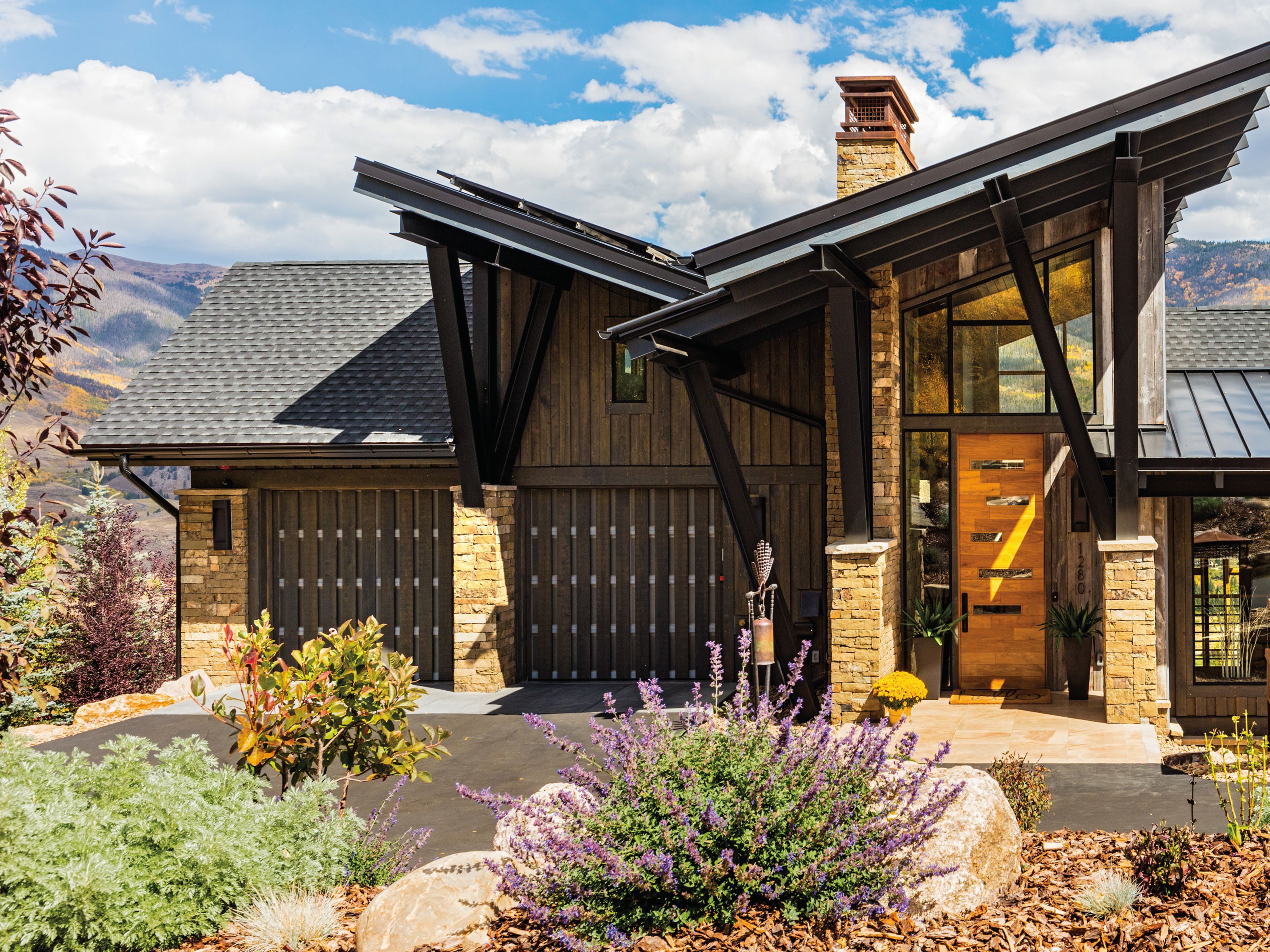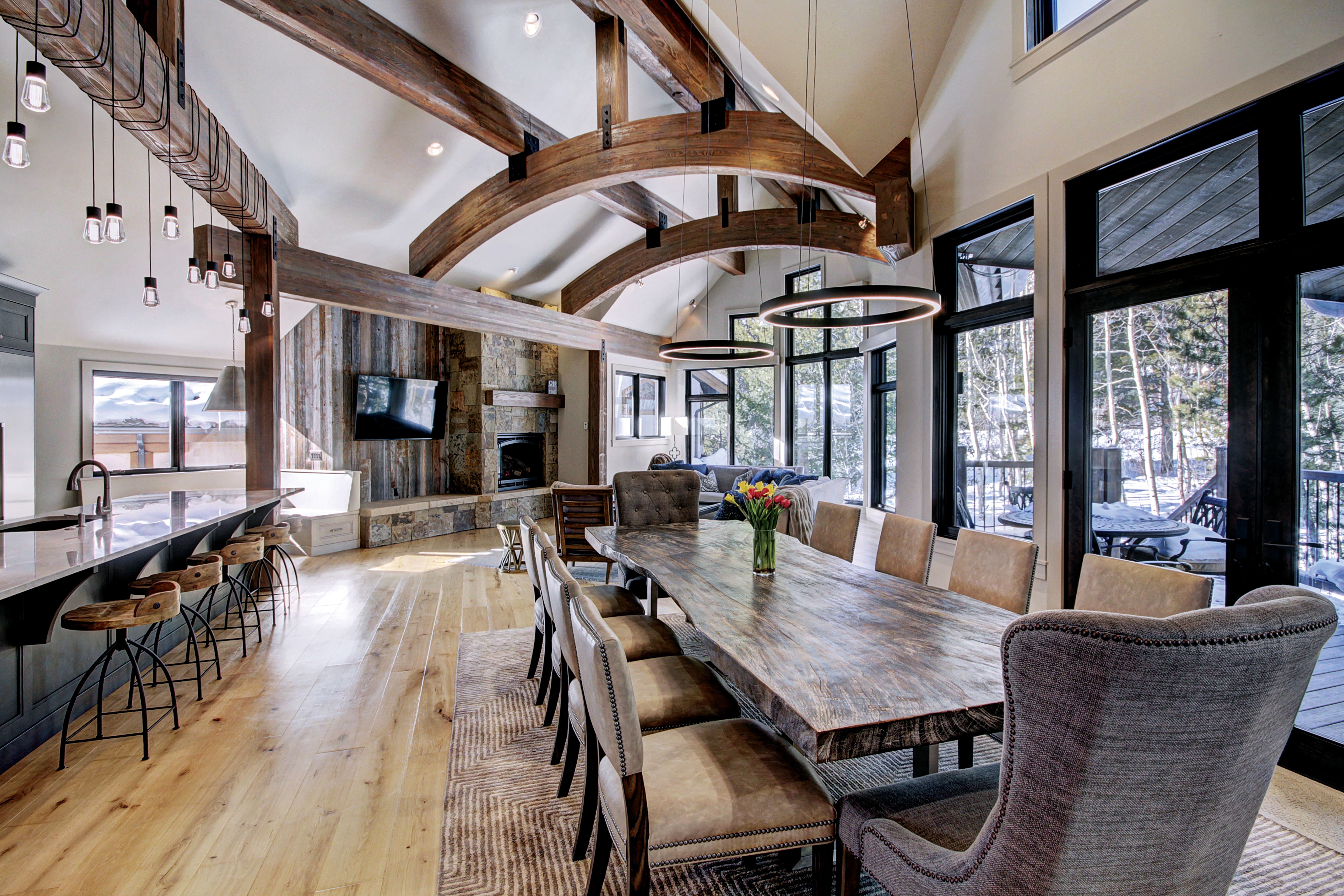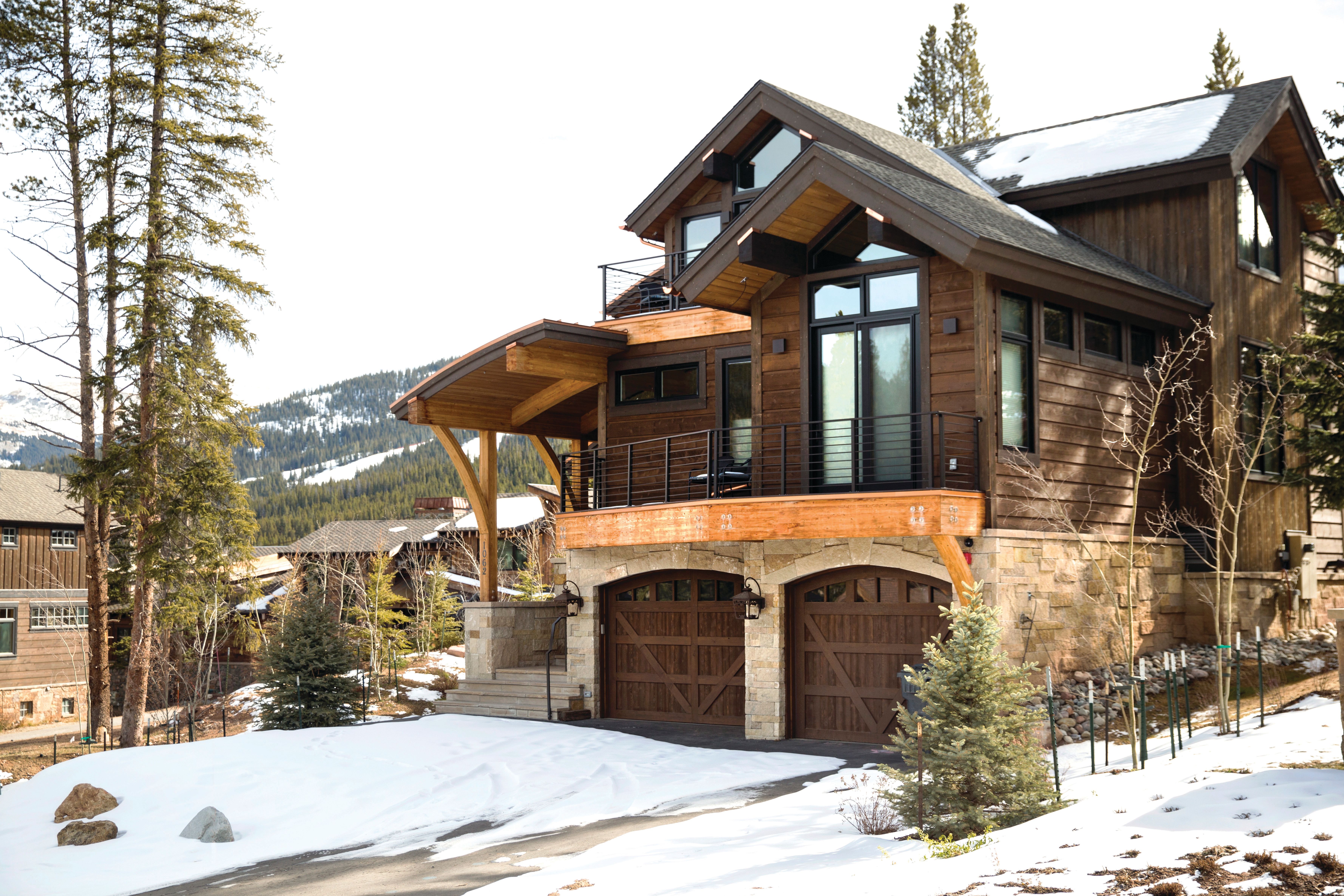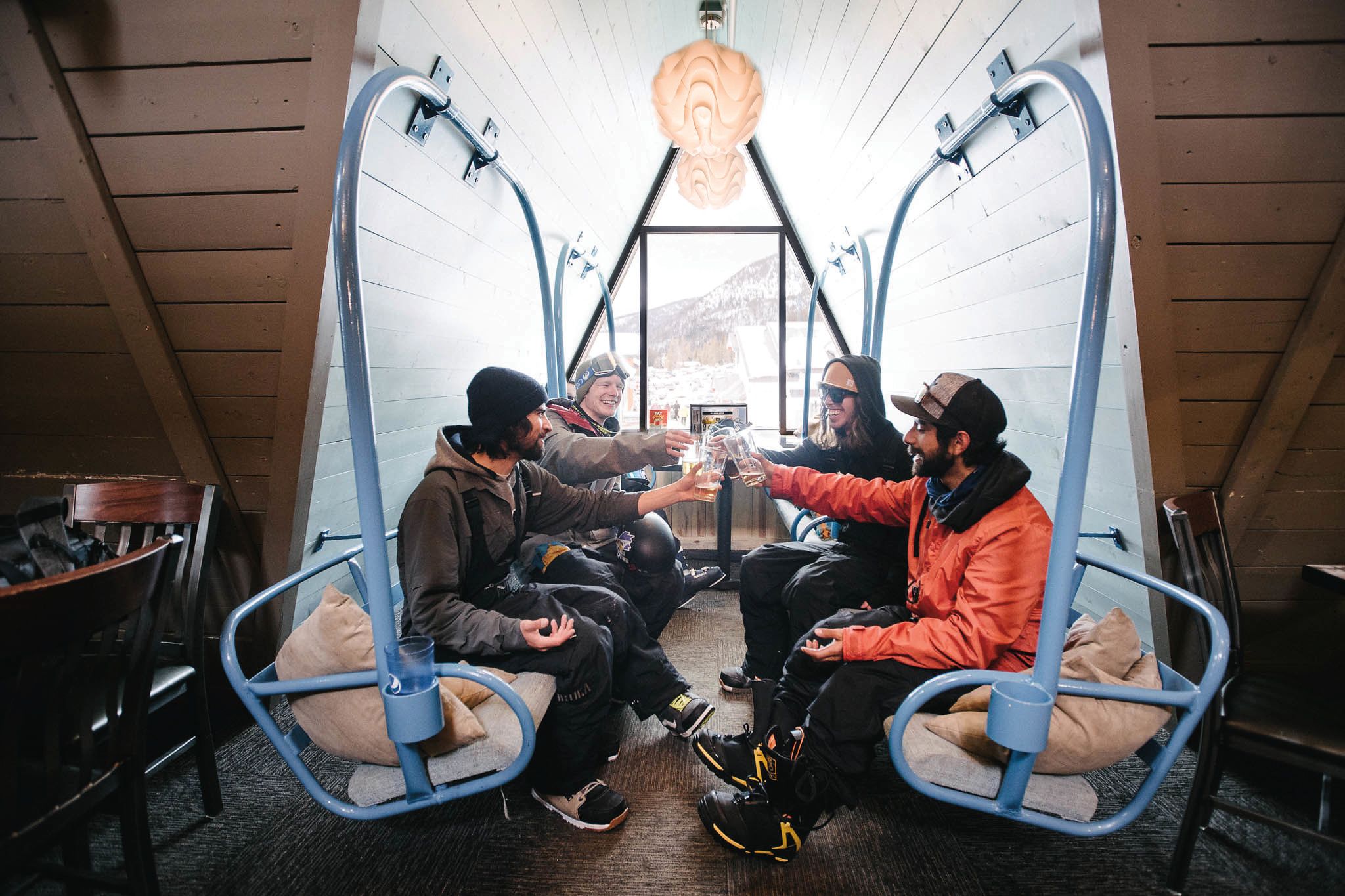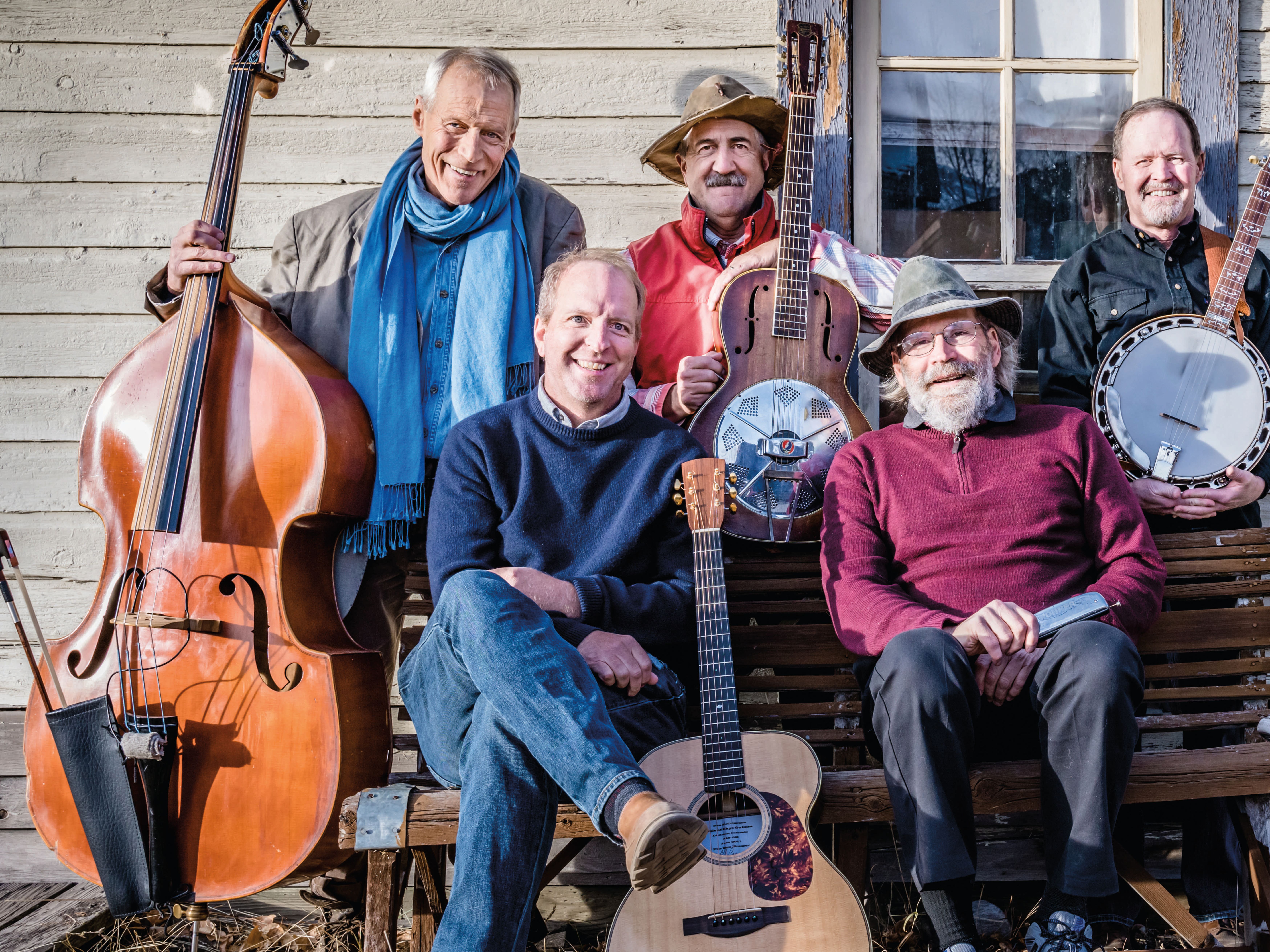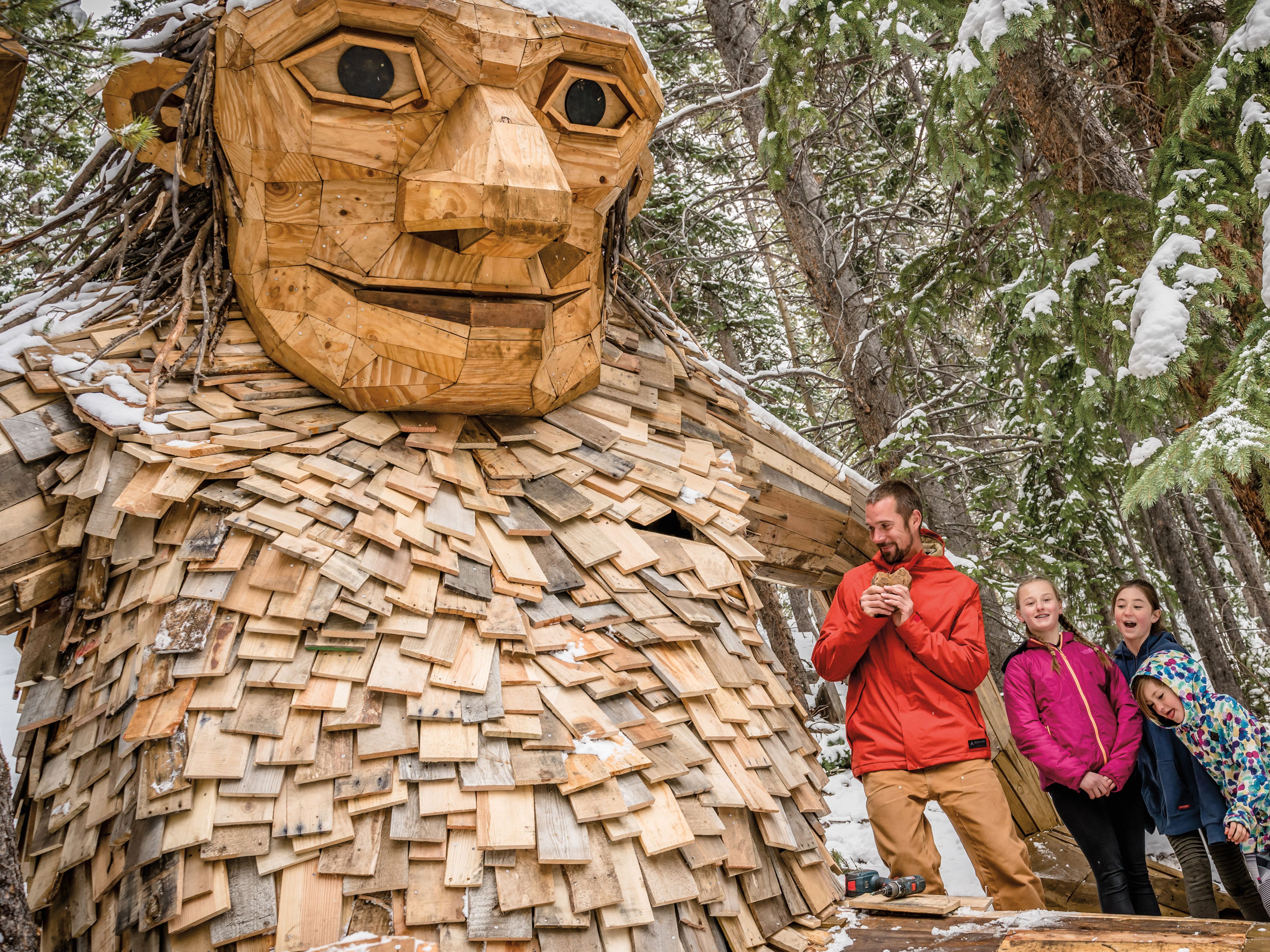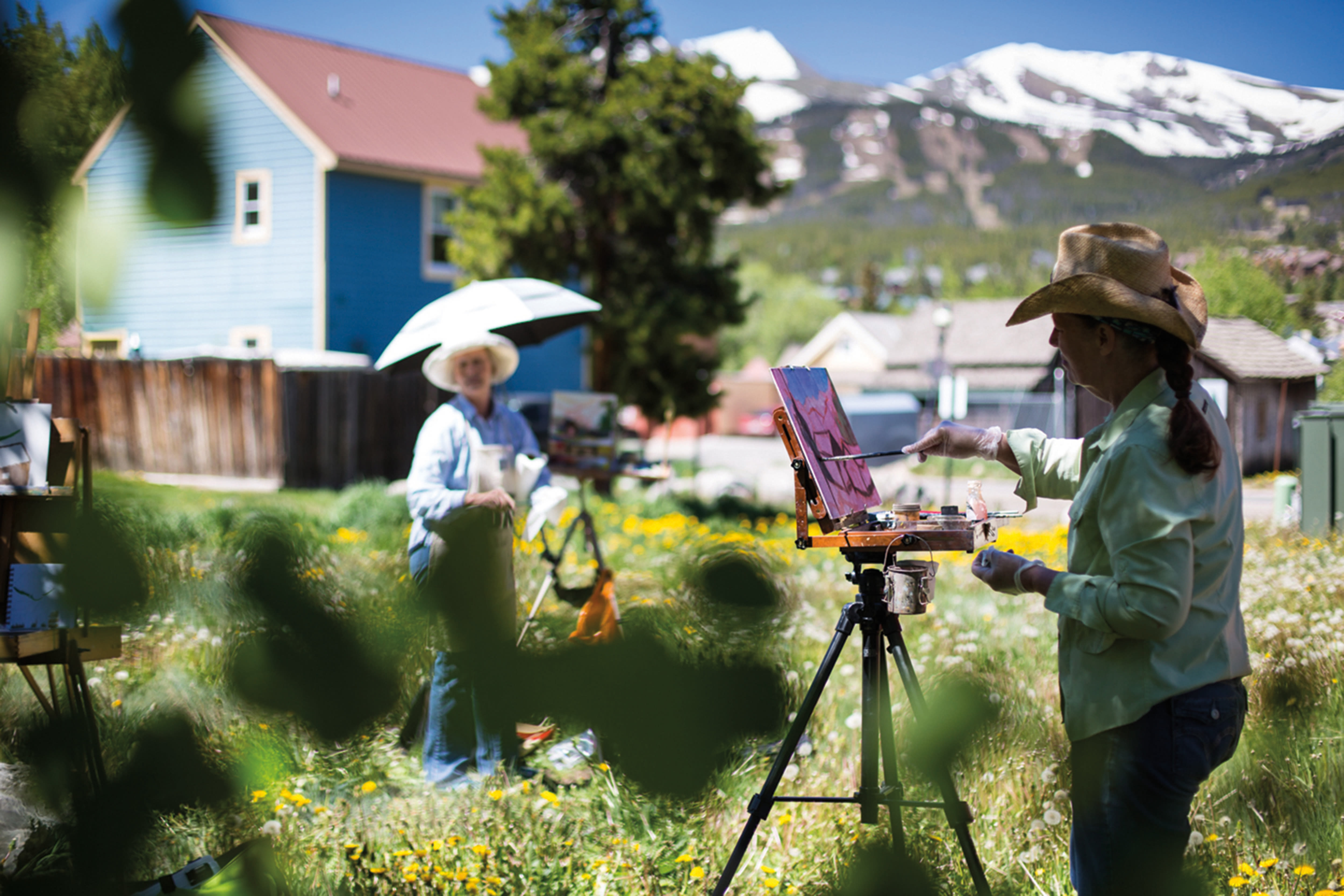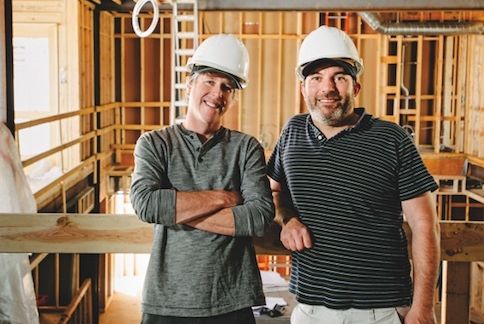Community
Sick Leave
An innovative local nonprofit gives visiting patients a vacation from cancer.
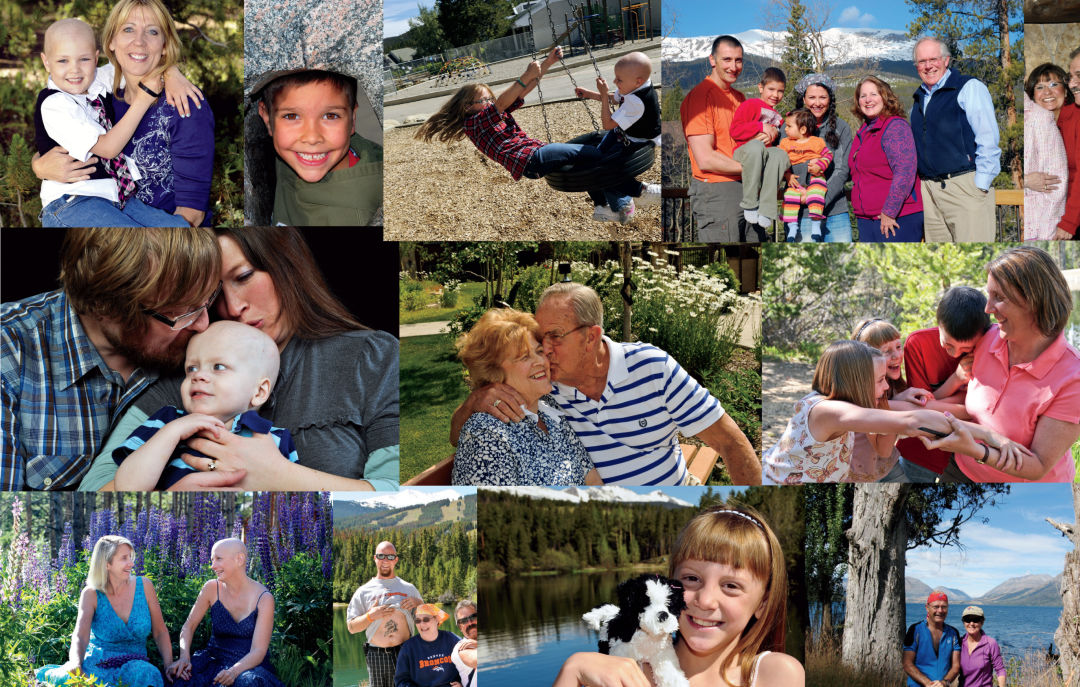
Pictured above: the beneficiaries of Domus Pacis.
Image: Domus Pacis
"I’m so close to this, I don’t even see cancer. I don’t see sadness.”
Duck White-Petteruti is sitting in her Blue River home trying to articulate the impact of Domus Pacis, the nonprofit cancer respite she and her husband, Vince, founded in 2008. It is not easy to develop a blind spot for the sadness on the faces of families who have been ravaged by cancer: the disease creates chaos and stress that patients and caregivers say are incomprehensible to those who haven’t been touched by it. Which is why Domus Pacis matters so much to the people it serves.
Consider Denver resident Kim Murdock and her husband, Reg, who were guests of Domus Pacis in September 2013, two months before Reg died from a rare form of thyroid cancer at age 48. The disease had paralyzed him leading up to their visit, confining him to a wheelchair. Like all of the 320 families Domus Pacis has hosted in its six-year history—
95 percent of whom come from the Front Range—the Murdocks drove up to Breck for a dose of worry-free R&R. They stayed rent-free for ten-plus days in a donated vacation home, a volunteer cooked them vegan meals, and Domus Pacis even treated Kim to a spa pampering.
“We just got to be a couple,” Kim says. “There were no doctor’s appointments. There wasn’t the chaos. You’re surrounded by beauty—just being able to get outside and be without other people, in nature, was so refreshing. Nature can renew you like nothing else can.”
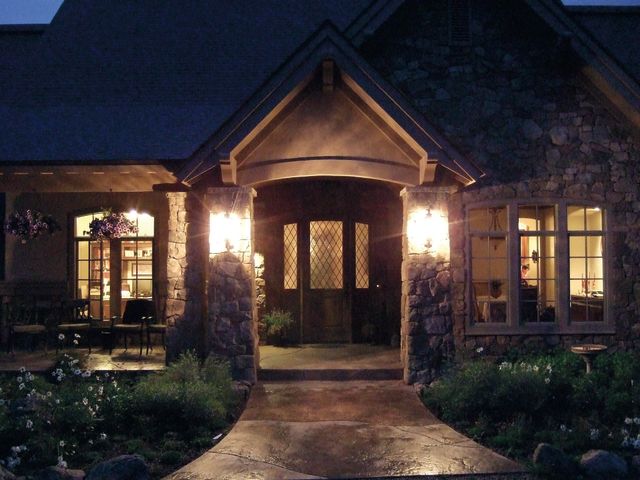
A gift of sanctuary.
Image: Domus Pacis
The genesis of Domus Pacis, which means “house of peace” in Latin, dates to 1997. White-Petteruti’s mother was dying of cancer, and Duck—then an advertising executive in Chicago—decided she needed a mountain fix to help her cope with the situation. “Mom,” she asked, “wanna go with?” They stayed in Vail for a week, and the break from all of the stress back home was transformative. “The day Mom died,” Duck recalls, “she was still looking at pictures from that trip.”
A decade later, now relocated to Breck, White-Petteruti decided to do for other cancer families what she had done for hers: provide a nature-oriented respite, a weeklong “no regrets” escape from their illness. She created a referral system of oncologists, caregivers, and social workers to serve as Domus Pacis liaisons. Respites are open to a range of applicants. Sometimes just the patient and a spouse attend. Other times a group of twenty family members and friends use the trip to say good-bye to a dying patient. Even after a patient has passed away, grieving loved ones can apply for a respite. So can patients who are in remission.
Domus Pacis relies on a substantial network of volunteers and in-kind donors, most notably the owners of some seven-dozen rental properties around Summit County who welcome respite visitors into their homes as long as Domus Pacis pays the cleaning fee (which, considering the square-footages involved, is the organization’s biggest annual expense). But many others help in different ways: a local bus driver cooks bread for the families; restaurateurs donate gift certificates; one homeowner also offers the gift of prayer.
The greatest challenge for the organization, not surprisingly, is fundraising: Domus Pacis will need $180,000 to host the 100 families it hopes to bring to Breck in 2014. But, says White-Petteruti, that six-figure operating budget is a bargain considering the potential return on that investment.
“You see physical changes in people,” she adds. “Their color changes. One man said, ‘I got up in the morning and went outside, and I could feel the stress melt off of me.’”
Another time, a father whose daughter had fought brain cancer for seven years hugged Vince, weeping. “Thank you for giving me something I could never give my family,” he said.
As White-Petteruti likes to put it, Domus Pacis counterbalances the depth of such sorrows with a bottomless reservoir of compassion.








